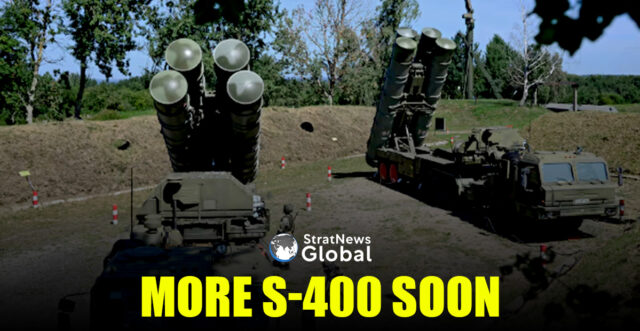Russian Defence Minister Andrey Belousov has assured his Indian counterpart Rajnath Singh that the remaining two squadrons of S-400 missile systems will be delivered to India by 2026-27, despite delays linked to the ongoing Russia-Ukraine conflict.
The two ministers held high-level discussions on the sidelines of the Shanghai Cooperation Organisation (SCO) meeting in China, where they reaffirmed their countries’ longstanding defence partnership.
During the talks, India also formally conveyed its interest in acquiring two additional S-400 systems, following their successful deployment during Operation Sindoor earlier this year.
A Gamechanger
The S-400 air defence system, with the ability to detect targets up to 600 km away and intercept them within a 400 km radius, played a pivotal role in strengthening India’s air defence capabilities during the military standoff with Pakistan from May 7 to 10.
Russian Defence Minister Andrey Belousov has assured his Indian counterpart Rajnath Singh that the remaining two squadrons of the S-400 Triumf surface-to-air missile systems — part of the $5.43 billion agreement signed in 2018 — will be delivered by 2026-27.
The delivery schedule had been impacted by supply chain disruptions stemming from the ongoing Russia-Ukraine conflict. So far, India has received three out of the five missile units.
Fighter Jet Upgrades
The two sides also discussed plans to upgrade India’s fleet of around 260 Russian-origin Su-30 MKI fighter jets, which played a critical role during Operation Sindoor earlier this year.
The proposed modernisation aims to significantly boost the aircraft’s combat effectiveness, with both nations exploring co-production of air-to-air missiles and other essential defence equipment as part of broader defence cooperation.
In addition to his meeting with Belousov, Rajnath Singh held bilateral discussions with the defence ministers of Belarus, Tajikistan, and Kazakhstan, underlining India’s strategic focus on strengthening defence ties across the Shanghai Cooperation Organisation (SCO) region.
Project Kusha
Singh emphasised India’s growing defence manufacturing capabilities and called for deeper technical collaboration, particularly in advanced warfare technologies.
Simultaneously, India is progressing with its indigenous air defence programme, Project Kusha, which is expected to be operational between 2028 and 2029.
The country is also actively investing in next-generation defence technologies, including hypersonic missiles and drone warfare systems, as part of its broader efforts to modernise its military capabilities.
(With inputs from IBNS)





